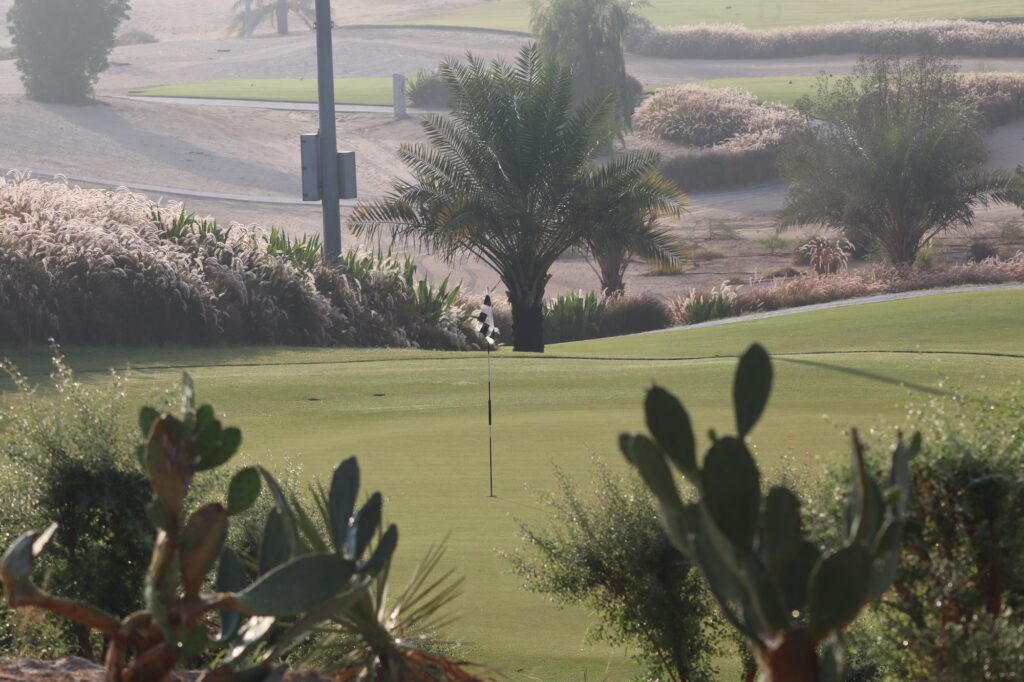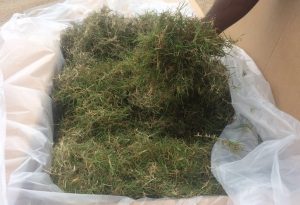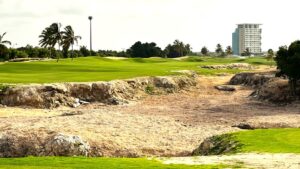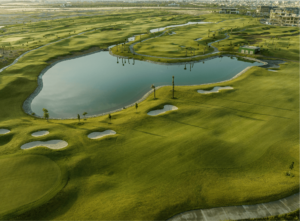Golf originally came to the Persian Gulf because of the oil industry. The legendary architect John Morrison made an arduous journey by air from London to Kuwait in late 1949 to lay out the Ahmadi course for the Kuwait Oil Company, only three years after the country’s first oil exports were shipped, to give the company’s mostly British expat workers something to do in their leisure time. Ahmadi was a sand-only course with ‘browns’ rather than greens; the first grass course in the Middle East was the Majlis in Dubai, which opened in 1988.
Since that time much golf has been developed across the Middle East, aimed at attracting tourists and making the region more attractive to expats in industries other than petrochemicals as part of a long-term plan to diversify Gulf economies. But, in the emirate of Abu Dhabi, another ‘company course’ is currently being developed – and Atlas Turf’s Pure Dynasty seeded paspalum is playing a crucial role.
The city of Ruwais is around 150 miles west of Abu Dhabi city and exists primarily to support nearby petroleum activities. Ruwais was developed by the Abu Dhabi National Oil Company (ADNOC). It is a classic example of a ‘company town’. As such, there was little for residents to do in their leisure time, so the oil company determined to build a selection of amenities – shopping malls, parks, etc – around the city.

Golf was one of the amenities chosen, so ADNOC hired a golf architect to visit the city and evaluate four possible sites for a course. One seemed better than the others, so ADNOC issued a tender for design services and British architect Jon Hunt of International Design Group (IDG) was chosen to create the golf course named Al Dhannah.
“This was before the Covid-19 pandemic and we spent two weeks in an ADNOC office drawing up the design,” says Hunt. “Housing was not originally part of the plan, but we convinced the company to add 50-60 housing plots and a hotel to the masterplan – the houses will be used for company staff.”
The plan calls for an eighteen hole course, but the build had to be staged for reasons of cost. Construction of the first nine took place during the pandemic – Hunt says he was unable to get to the site for an extended period and relied on video links supplied by contractor Desert Group to supervise the work – and the holes opened in 2022.
“As yet, it isn’t clear exactly when the second nine will happen,” he says.
“We selected Pure Dynasty because of our trust in Atlas Turf – the grass, the brand and the people – and because the contractor felt that a seeded product would be best. And that trust has been rewarded – the grass has performed brilliantly.”
Jon Hunt, Architect at International Design Group
The vast majority of the water supply to Al Dhannah is treated sewage effluent (TSE), although there is also some groundwater abstraction – though Hunt says the groundwater is also rather saline. “The saline character of the irrigation sources meant that paspalum was always going to be the best choice – it was fairly clear that it would cope better with the water than bermudagrass would,” he says. “In any case, I’m a big fan of paspalum, and I love grasses that can be used wall to wall – the client wanted perfect turfgrass in an otherwise desert environment and to not have to mow anything outside the playing areas. We selected Pure Dynasty because of our trust in Atlas Turf – the grass, the brand and the people – and because the contractor felt that a seeded product would be best. And that trust has been rewarded – the grass has performed brilliantly.”



